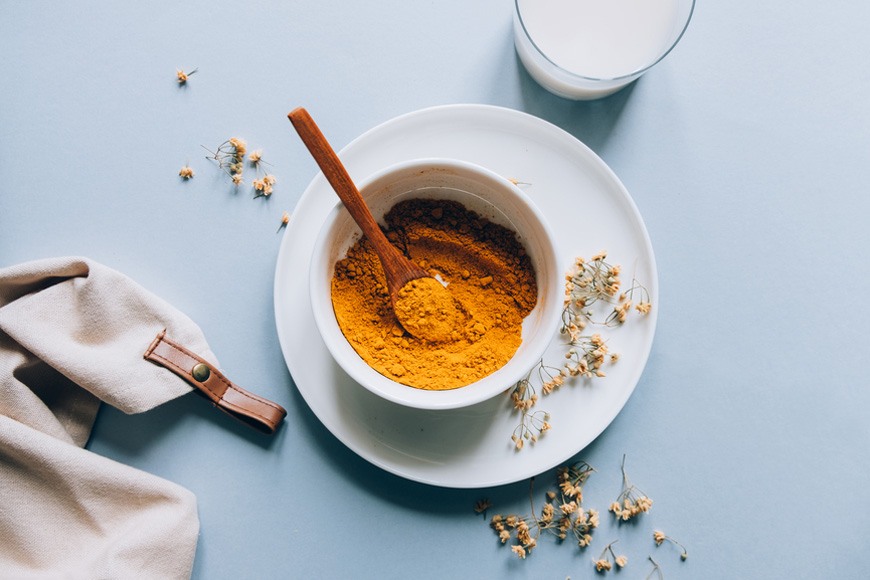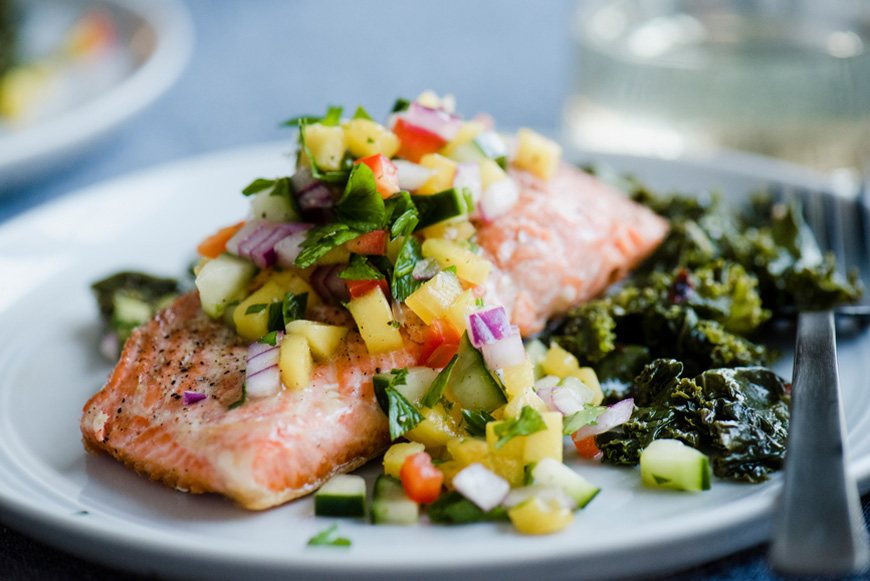How Anti-Inflammatory Supplements Can Effect Your Health (in a Good Way!)
Yes and no, according to the experts I turned to for advice. Food Coach founder Dana James recommends a doing a medical deep-dive before resorting to supplementation. "My philosophy is to find the cause of the inflammation—usually diet, gut microbiome, food sensitivity, or heavy metals—versus taking a supplement to lower it," she says. "Otherwise you’ll be on the supplement for life because you’re not getting to the cause of [the issue]."
Parsley Health's Jeffery Egler, MD, agrees that the best way to treat inflammation is to understand its source. However, he also believes that a little assistance can be helpful while you're figuring things out. "It's a more generic approach, as opposed to a root-cause solution," he says. But which ingredients can most effectively chill your stressed-out system—and is it better to get them from supplements or whole foods? Here, wellness pros make a case for both sides of the dietary debate.
Check out the key nutrients you should be consuming to keep inflammation at bay.

The best supplements for inflammation
If you decide to ward off inflammation through supplementation, Egler advises the use of omega-3 fatty acids (e.g. fish oil), vitamin D3, and "perhaps" curcumin, AKA turmeric.
With respect to the latter, The Well Necessities founder Lisa Hayim, MS, RD, offers some advice. "Curcumin is not easily absorbed by the body, which is why it is recommended to [consume it with] black pepper," she says. "Alternatively, you can boost its absorption by adding a fat to it, since it’s fat-soluble." She recommends a product called Zyflamend, which delivers water-soluble curcumin with oily compounds, fermented to better aid in digestion and absorption.
Hayim also recommends two additional inflammation-fighting supplements. "Astaxanthin—the substance responsible for giving animals like salmon a pink hue, which originally comes from algae—is extremely powerful in protecting the cells from oxidative damage and inflammation," she says. (Fun fact: Astaxanthin can cross the blood-brain barrier to protect the noggin, as well as your peepers.)

{{post.sponsorText}}
She's also a fan of rosemary supplements, which contains two active compounds—carnosol and carnosic acid—that are linked to inflammation in the muscles, blood vessels, and joints. The herb has also been found to improve brain health while reducing your risk of bacterial infections, diabetes, and cancer. Not bad for something you can grow on your windowsill, right?f

A case for *not* taking anti-inflammatory supplements
And what if you don't have the budget to add a bunch of new supplements to your regimen? You may be able to get similar results just by tweaking your grocery list. Bonnie Taub-Dix, RD, actually believes it's better to ingest anti-inflammatory nutrients via food sources, as opposed to capsules. She suggests seeking out recipes that feature turmeric and omega-3-rich foods, plus those containing ginger and resveratrol.
"[These nutrients] have been cited as playing a role in boosting your immune system, stabilizing blood sugar levels to help control diabetes, maintaining healthy blood pressure, relieving the pain of arthritis, supporting heart health, and preventing certain cancers," she says. "Try adding turmeric and ginger to veggie dishes, and eat fish twice a week to boost your omega-3 intake. You can get resveratrol through grapes—and perhaps red wine." Gotta love an Rx that includes your favorite bottle of Pinot Noir, amirite?
To really up your anti-inflammation game, you may want to consider adding probiotics, collagen, fiber supplements, and stress-reducing adaptogens to your regimen as well.
Loading More Posts...